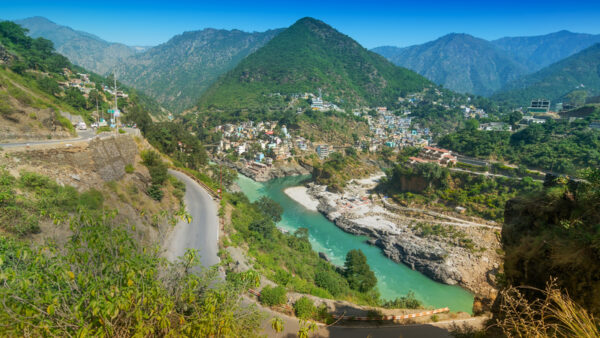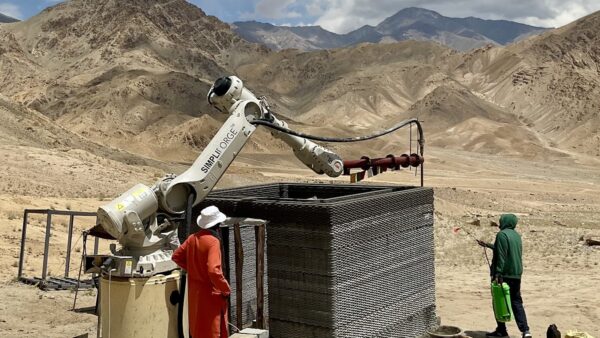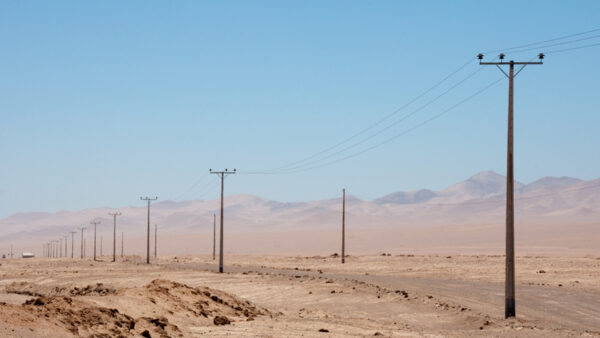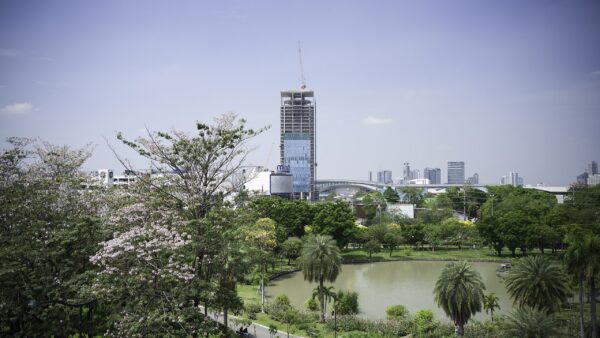The US embassy in Kenya has rejected a newspaper’s criticism over a $3bn road contract awarded to Bechtel without competitive bidding.
The embassy said the Nairobi-to-Mombasa expressway had been under discussion for two years, and had been evaluated to ensure Kenyans receive value for their money.
It also rejected press claims that the award was a “thank you” to the US for its political support of the Uhuru Kenyatta government.
On 13 September, the day after the article appeared, the embassy tweeted: “US private firms (bound by US anti-corruption laws) investing in Kenya’s future bring jobs, tech transfer and development. This expressway has been under development for two years to bring best value. The US embassy does not and will not give political favours for commercial deals. On Kenyan election 2017, we’ve been and will continue to be strictly neutral.”
Kenyan government officials also defended the Bechtel deal. Peter Mundinia, director general of the Kenya National Highways Authority (KeNHA), said on 18 September that Bechtel was selected because of its experience of handling large infrastructure projects “over 119 years”.
He added that the Kenyan government had entered into an agreement with the US government in July 2015 whereby US companies would develop key infrastructure projects with US funding.
The US and Kenyan authorities were responding to an article in Kenya’s Financial Standard newspaper that questioned the way the project was announced and quoted from a Ministry of Transport briefing, carried out before the contract award, which argued the project should be put out to tender as a public-private partnership (PPP).
The Standard highlighted the fact that contract for the 473km A8 expressway between Mombasa and Nairobi was announced three days before the 8 August general election, and broke with established practice by being made without a Ministry of Transport press conference or an announcement from the president’s office.
Instead, the announcement was made on a Saturday afternoon when government departments are usually closed, and made no mention of the project’s estimated price.
The newspaper drew a comparison with the way the government had awarded the country’s standard gauge railway (SGR) scheme to Chinese contractors before the 2013 general election. In both cases the winner was appointed without putting the work out to competitive tender.
In the SGR case, the choice was determined by the fact that China was making the funding available for the line; in the case of the motorway, the motive was to thank America for an “unspecified service” that the US had done for Kenya, according to unnamed “government insiders” quoted by the Standard.
According to the Standard there are now concerns within the Kenyan government over the amount of debt the country is taking on. The combined cost of the rail and road link between the country’s main port and the capital is likely to be at least $6.7bn, or almost 10% of the country’s GDP.
The controversy comes at a sensitive time in Kenya after the results of the 8 August election, which recorded a victory for the country’s incumbent president Uhuru Kenyatta, were annulled by Kenya’s Supreme Court on 1 September.
The court cited irregularities and illegalities in the transmission of results and ordered the election to be held again within 60 days. It is due to take place on 26 October. Kenya has a history of serious post-election violence.
The ministry’s brief
The Standard claims to have seen “some working papers” from “insiders at the Treasury and the Ministry of Transport” that raise “sharp questions” about how the project was procured.
One of these, a brief by the State Department for Infrastructure, part of the transport ministry, was critical of the Bechtel deal. It said: “Although the proposal is being referred to as an ‘alternative project concept’ or ‘highway development concept’, it is simply a non-competitive, single-source procurement of an EPC contractor who is able to bring financing with it.”
The brief queried why a previous model financed by the World Bank was abandoned and how it was determined that the single-source approach would offer taxpayers better value than a public-private partnership (PPP).
It argued that if Bechtel’s proposal was cheaper than a PPP scheme it could still tender under the proposed PPP project model and seek financing from US government lenders such as the Overseas Private Investment Corporation or Exim Bank at their preferred cheaper rates.
George Kiiru, the head of PPP at KeNHA, told the Standard that the government preferred an EPC because it would be delivered faster. He said: “Achieving commercial and financial close for PPP contracts can take two to three years thereby delaying the start of construction and completion of the project.”
However, the brief maintained that PPP would make up that time by splitting the road into three projects and having three contractors work on it simultaneously. Another four-lane road project, between Nairobi and Mau Summit, had been offered on a PPP basis earlier this year, and attracted 10 bids from multinational companies.
KeNHA said in its response that a feasibility study had found that the project would pay for itself through tolls, largely because the expressway would allow speeds of 120kph, and would reduce travel time from Nairobi to Mombasa to four hours, compared with 10 on the heavily congested alternative.
The price
According to the Standard, the State Department for Infrastructure brief said Bechtel’s construction costs per kilometre were higher than estimates presented to the ministry by accountant PwC.
Bechtel’s costing proposal is estimated at $6m per kilometre compared to the $5m calculated by PwC. The brief said: “The per kilometre costs under the PPP proposal includes all taxes and duties whereas Bechtel’s proposal assumes complete exemption from corporate tax, income tax and import duties, which could reasonably be assumed to cost the government of Kenya an additional $1m per kilometre.”
The brief added that Bechtel was asking for an advance payment of $300m and a $100m “establishment fee”. “So Bechtel will be given $400m in funds before the start of the project whereas the government of Kenya will be paying interest on this sum from day one.
Another source of concern in the Kenyan government is the final cost of the project. The figure quoted in the press of $2.9bn is a rough approximation, largely because much of the work has not been properly costed yet.
A source at Treasury told the Standard that the project would probably cost just as much as the $3.8bn SGR, but other costs such as land compensation and interest payments would push it up to nearer $5bn.
Image: Nairobi will have a four-hour road link with the port of Mombasa – but as what cost? (Creative Commons)
Further Reading:
Comments
Comments are closed.











It sounds like the current election disputes in Kenya have given rise to such speculation! Rather unfortunate it is. Yet should the road be delayed all of Kenya will be disadvantaged!